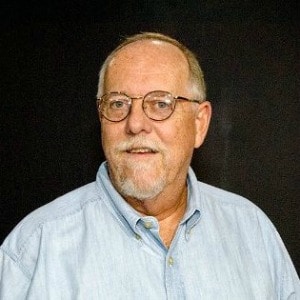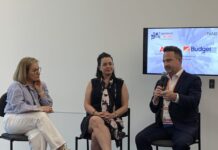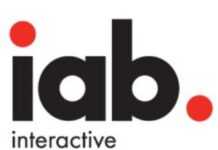
That was one of the questions we asked Chris Kampmeier, iHeartMedia’s veteran programmer who’s retiring New Year’s Eve. In the final installment of our interview with Chris, we asked him for his thoughts on the Portable People Meter technology, whether programming a radio station is easier today than it was decades ago when he started, and the skills the program director of 2017 will need to win. Here’s what he had to say…
Radio Ink: Was PPM a success in your opinion?
Chris Kampmeier: It’s a challenging technology, but whether PPM is better than diary or diary better than PPM, who knows. But the real fundamental issue is, and always has been, and probably always will be, unless radios are designed differently than they are today, is that unlike virtually every business on planet Earth, there’s no cash register that documents factually the relationship between the listener and your radio station. These are, after all, research projects. They’re not like a cash register at a hardware store. That guy at the hardware store, he knows exactly what inventory he sold today and how much it’s worth and the direct impact on his bottom line, and we simply don’t have any sort of device that captures every transaction between every listener and every radio station, and it’s unlikely that we are ever going to. Whether it’s diary or PPM, they each have their own idiosyncrasies, but the fact that it is a research project in the first place calls into question so many issues like ‘who is willing to participate in research projects today?’ What about the cellphone issue? These are massive challenges. We see the volatility in our numbers. We had volatility when we were in diary and we have volatility today when we’re PPM. Right now, I have a Classic Rock competitor that is putting up 15 and 18 shares of men 18-34 in mornings and middays. When you look at the appropriate demographic for that Classic Rock station, they have sixes and sevens, about where they ought to be in older adults, and they’re our primary core for classic rock. Why is a Classic Rock station pulling 15 shares of men 18-34? That’s a hell of a question and probably one of those idiosyncrasies, in the fact that we don’t have a cash register, instead a research project determines our audience.
Radio Ink: Is programming radio easier or harder than it was 10, 20, 30 years ago, as you’ve seen it evolve?
Chris Kampmeier: I would say it’s easier in the sense that we have wildly more sophisticated tools to analyze what we do, how we go about creating our product and what we know about how it’s being received by our listeners—what parts are working and what parts are not. So, in that sense, it’s a lot easier, because we just have fantastic tools today that we didn’t have in the past. On the other hand, everybody has more or less the same tools. It’s not good enough to just be smart and come in with a clever idea. Chances are your competitors are reasonably smart and come up with their own clever ideas. In that sense, when I think back to my early years as a program director, specifically the years that I was first introduced to music research and other types of audience research, if you were the person in town that was doing the research and knew which songs really to play, all you had to is get the songs right and you could clobber anybody, literally overnight. That doesn’t happen very often anymore.
Radio Ink: What’s the make-up, these days, of a great program director? How do you spot one?
Chris Kampmeier: Wow. Well, there are certainly a lot of technical skills that are needed today, simply because of all of the tools and resources that we have and you have to learn each one of them. And the time-management skills that are needed to be able to put all those tools and resources into effect for your radio station is an awesome time commitment. So that’s a real challenge. As somebody who manages program directors, I would say one of our biggest challenges is finding great program directors that have been trained and really know what they’re doing. For a programmer today, I am looking more than anything else for honesty, integrity, creativity certainly, leadership certainly, the ability to motivate their team to get them all pulling in the right direction, and to love what they’re doing. If you get those components right, chances are you will have a pretty successful radio station.
Radio Ink: What do you see as a couple of the biggest issues programmers are going to face in 2017?
Chris Kampmeier: I think if a market is currently not making a significant cash-flow contribution to the parent company, then the ability to get resources in those kinds of markets, particularly the resources and personnel that could really change their competitive posture, is a real challenge. If you are one of those clusters that plays a key role in how your company achieves or maintains its profitability, then I don’t think that challenge is there because that infrastructure or the personnel needed are in place.
Radio Ink: What would you say, when you look back over your career, that you consider one of the biggest accomplishments you’ve had as a manager?
Chris Kampmeier: Well, no question, the last 20 years at the iHeartMedia cluster here in Orlando has been outstanding. For most of the last 20 years, we were pretty neck and neck with Cox—both notching a 30-31% of 25-54 listening in the market. But over the past several years, we’ve been able to push our share up in the 42 share range for the cluster, significantly widening the competitive gap between the two. I have had four of the top 25-54, five of the top five 18-49 several times this year, and four of the top five 18-34 most of this year. In revenue right now, we have the top five stations in the markets. So, it’s been an unbelievable year.
Radio Ink: What’s the trick there? How were you able to accomplish all that? That’s amazing.
Chris Kampmeier: Really, I think it’s the consistency of our brands. Of our five major FM frequencies, we’ve only made two format changes on one frequency in the past 20 years. So, we’ve been very stable. Certainly we’ve had players come and go over the years, but our core talent on all of our major properties has been largely unchanged for almost that entire 20 years. That’s shown itself in significantly improved, not only ratings, but also endorsement revenue and just those quality relationships between listeners and on-air talent that really provide the underpinnings for long-term ratings success and consistency.
Radio Ink: If you had a room full of the 40 most powerful people in radio and were able to tell them what you think radio should do better, what would you say to them?
Chris Kampmeier: I think focus on talent on either side of the ledger. Talent is what really drives the success in our business, or really any business. There are fantastic people out there and when you get outside of very successful clusters, you see that there are very, very few people in the building. We’ve stopped investing as an industry. We don’t spend very much money on research, not nearly as much money as we used to. My god, we don’t hardly spend any marketing dollars any longer. We rely on social media for our marketing, which can play a valuable role in that area, but is still no substitute for marketing our products, especially new products when we launch them.
Part one of our interview: Of Course Radio is Playing Too May Commercials
Part two of our interview: What it Take to be A Great Leader
Reach out to Chris and wish him well on his retirement by e-mail at [email protected]





